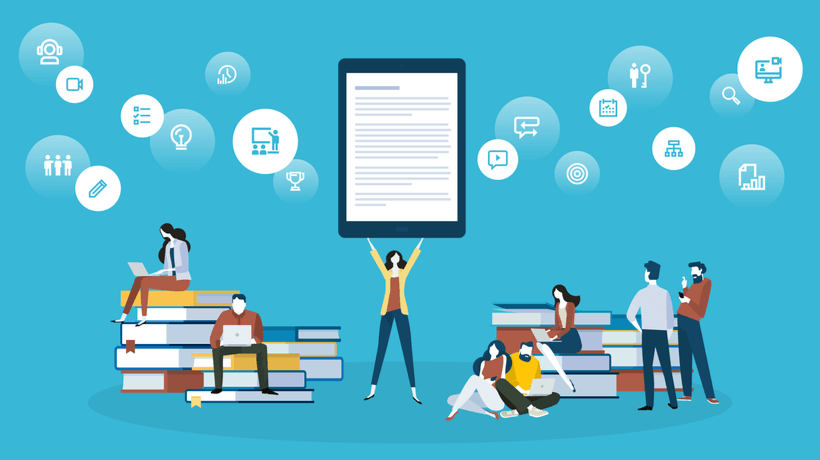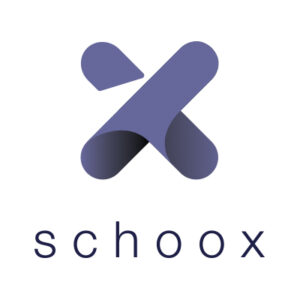On Mobile Learning And Gen Z Learning Habits
The digital revolution has dramatically transformed the way we learn and access information. With the rise of mobile learning, also known as mLearning, the educational landscape has changed significantly, and Gen Z is leading the way. Gen Z, the cohort born between 1997 and 2012, has grown up in an era where mobile technology is ubiquitous, and eLearning apps are just a click away. As a result, they are the most comfortable generation when it comes to using mobile devices for learning purposes.
Mobile learning, which involves the use of mobile devices such as smartphones and tablets to access educational resources, has become increasingly popular in recent years. This is largely due to the proliferation of education app development, which has made it easier than ever to access a wealth of educational content on the go. From language learning to coding and beyond, there are numerous mobile learning apps available that cater to the diverse learning needs of Gen Z.
But why is Gen Z so comfortable with mobile learning? For starters, it's convenient. With mobile learning, they can learn anytime, anywhere, without being tied to a physical classroom or computer. Moreover, mobile learning is interactive and engaging, which aligns with their digital native sensibilities. They are used to engaging with technology in all aspects of their lives, and mobile learning is no exception. In this article, we'll explore why Gen Z is comfortable with mobile learning and how it is shaping their learning habits. We'll delve into the benefits of mobile learning, discuss the most popular eLearning apps, and explore the implications of mobile learning for the future of education. So, let's dive in and explore the world of mobile learning and Gen Z.
mLearning And Gen Z: Some Vital Statistics
Generation Z is more tech-savvy as compared to millennials. With the ubiquitous mobile technology, they are more comfortable using eLearning mobile apps. A list of the latest statistics related to Gen Z and why they prefer mLearning over traditional learning.
- 29% of Gen Z believe that robots can teach courses efficiently.
- 88% of Gen Z prefer collaborative work rather than individual work.
- 67% of Gen Z favor personalized learning experiences.
- Around 80% of Gen Z look to the internet for completing assignments.
- 66% of Gen Z prefer to learn lessons through emerging technologies.
- 80% of Gen Z use YouTube to better understand lessons.
The Rise of Mobile Learning Apps
Mobile learning, also known as mLearning, is revolutionizing the education industry. With the increasing use of smartphones and tablets, eLearning mobile apps are becoming more popular than ever before. The convenience, flexibility, and accessibility of mobile learning make it an attractive option for learners of all ages, but especially for Gen Z. Here’s a list of some reasons advocating for the popularity of eLearning mobile apps:
1. Personalized And Engaging Learning Experience
With eLearning mobile app development, developers can create interactive and immersive learning experiences that cater to the unique needs and learning styles of individual learners. This can help learners to stay motivated and engaged, leading to better learning outcomes.
2. Education Apps Assure Convenience
Undoubtedly, mobile learning apps offer great convenience for learning to users. Learners can access educational content anytime, anywhere, and on any device. This is especially beneficial for those who lead busy lives and don't have the time to attend traditional classroom-based courses. Mobile learning apps allow learners to learn at their own pace, on their own terms.
3. eLearning Mobile Apps Are Cost-Effective
Traditional education can be expensive, with the cost of tuition, textbooks, and other materials adding up quickly. With mobile learning apps, however, learners can access a wealth of educational content for a fraction of the cost. This makes education more accessible to learners from all backgrounds.
Advanced Features Of eLearning Apps
Gamification, social learning, and Artificial Intelligence are emerging and promising technologies for education app development. These features make learning more engaging, interactive, and fun. Gamification, in particular, has become increasingly popular in eLearning mobile app development. It involves incorporating game elements like badges, leaderboards, and rewards into the learning experience, which can motivate learners to achieve their goals. Mobile learning apps like Khan Academy, Duolingo, SkillShare, Blackboard Learn, etc., are globally popular eLearning apps. These mobile learning apps have been playing a key role in shaping Gen Z. What has been their impact on education?
The Impact of Mobile Learning on Gen Z
Mobile learning, or mLearning, has had a significant impact on education in recent years. Education app development has made it possible to deliver educational content to learners anytime, anywhere, on any device. This has transformed the way education is delivered and consumed and has led to several positive impacts.
1. Ease Of Accessibility
One of the primary impacts of mLearning on education is that it has made education more accessible. Traditional education requires learners to be physically present in a classroom, which can be difficult for those who live far from the nearest school or who have other commitments. With mLearning, learners can access educational content from anywhere in the world, as long as they have an internet connection. This has made education more inclusive and has opened up opportunities for learners who may not have had access to education otherwise.
2. Tailored Education For Gen Z
Moreover, mLearning has made education more personalized. With education app development, it is now possible to create customized learning experiences that cater to the unique needs and learning styles of Gen Z that prefer individual learning. This can help to improve learning outcomes and can ensure that learners stay engaged and motivated.
3. Interactive Learning
Another impact of mLearning on education is that it has made learning more interactive and engaging. With features like gamification, social learning, and Augmented Reality, education app development has made learning more fun and exciting. This can help to improve learner retention and can ensure that learners stay engaged with the material.
Finally, mLearning has had a positive impact on the education industry as a whole. It has opened up new markets for education providers and has created new opportunities for innovation and growth. Moreover, it has made education more accessible and inclusive, which aligns with the goals of many educators and policymakers.
How Mobile Learning Apps Impact The Behavioral Habits Of Gen Z
mLearning is having a profound impact on the behavioral habits of Gen Z, who have grown up in an era where mobile devices are ubiquitous. Education app development and mobile learning have made it possible for Gen Z learners to access educational content from anywhere, at any time, and on any device. This has led to several changes in their behavioral habits.
1. Autonomous Learning
One of the most significant impacts of mLearning on the behavioral habits of Gen Z is that it has made them more self-directed and autonomous learners. With education mobile app development, learners can take control of their own learning journey and set their own pace. This has led to a shift away from traditional classroom-based learning, where learners are often passive recipients of information.
2. Being Tech-Savvy
mLearning has made Gen Z learners more tech-savvy. They are comfortable using mobile devices to access educational content, which has made them more adept at using technology in general. This can be beneficial in the workplace, where technology skills are increasingly in demand.
3. Collaborative Learning
Another impact of mLearning on the behavioral habits of Gen Z is that it has made them more collaborative learners. Many education mobile apps include features that allow learners to connect with each other and work together on projects. This has helped to foster a sense of community and collaboration among Gen Z learners.
4. Flexible And Adaptable
Finally, mLearning has made Gen Z learners more flexible and adaptable. They are comfortable learning on the go and can quickly switch between different tasks and activities. This can be beneficial in the workplace, where employees are often required to be flexible and adaptable in order to succeed.
mLearning: The Future of Gen Z with eLearning Apps
The future of mobile learning for Gen Z is bright, with mLearning and education app development continuing to evolve and transform the way learners access and consume educational content. As the first generation to grow up with mobile devices, Gen Z is uniquely positioned to take advantage of the opportunities presented by mLearning.
With education app development, mLearning is becoming increasingly personalized and engaging, with customized learning experiences that cater to the unique needs and learning styles of individual learners. This can help to improve learning outcomes and ensure that learners stay engaged and motivated. Moreover, mLearning is making education more accessible and inclusive, breaking down geographical and socioeconomic barriers to learning. This is particularly important for Gen Z, who are increasingly concerned with issues of social justice and equity.
As mLearning continues to evolve, we can expect to see even more exciting developments in the field of education app development. New technologies, such as Virtual and Augmented Reality, are already being incorporated into mLearning, and it is likely that we will see even more innovative and immersive learning experiences in the future.









